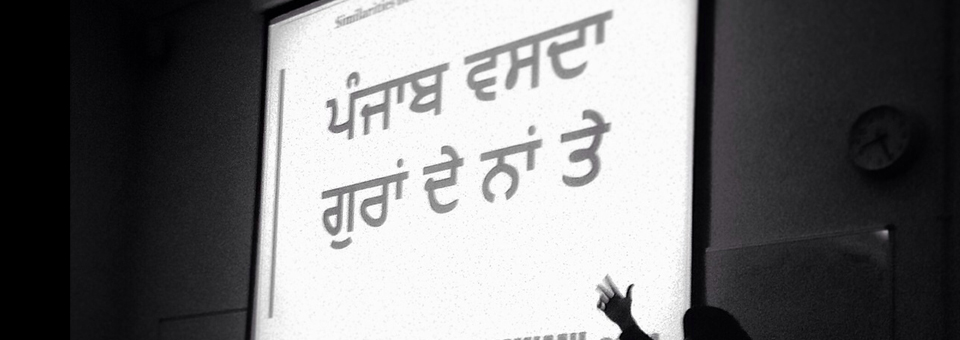Having seen and undergone a long ordeal of suffering and the resultant agony and pain, one can feel a sense of relief when in some instances the world takes steps to address the wrongs that have been or are being committed. Sri Lankan Tamils have for too long endured wide spread suffering and agony at the hands of their own country’s army and security forces as a result of their demand for equality and due participation at the national level. The recent step taken by the United Nations Human Rights Commission to initiate a thorough inquiry into those war crimes offers some relief and provides a step towards the future.
The voting pattern in the 40 countries who make up the body of the United Nations Human Rights Commission was 23 in favour of the inquiry, 12 against and 12 abstaining from the vote. The chief sponsors of the inquiry were led by the United States supported by other western nations like the UK, whilst the opposing side was led by Russia, Pakistan and China. Notably amongst the countries who abstained was India who despite the pressure put upon them by the Indian Tamil political parties led by the ruling party of Tamil Nadu and their Chief Minister M S Jayalalata chose to abstain.
The decades-long struggle of the ethnic Tamils who for long have been demanding due process of law and equality in a Sinhalese dominated region has seen the deaths of around 40,000 Tamils in the last phase of the struggle alone, between 2004 and 2009.
The Tamil people living in the western world have been pleading with the leaders of their nations for a long time to initiate an inquiry. Eventually they received the main support of the commissioner of the UNHRC Ms Navi Pillay, a former judge of South Africa and herself of Tamil origin. She fully understood the pain and suffering of Sri Lankan Tamils and firmly believed that an inquiry has to be initiated to bring the Sri Lankan Government to justice before the world and eventually she was able to get the support of a number of nations. It sends a strong signal worldwide that with consistent and unified efforts it is possible to seek justice.
It is of course just a small step, but one that can bring closure to some dark chapters in history. Sikhs too have for long suffered humiliation and the agony of wide spread injustices and crimes against humanity at the hands of the Indian army and it’s security forces, but have not been able to collect a unified voice of collectivity and support from the main Sikh political party, the Shiromani Akali Dal. Led by the formidable Parkash Singh Badal for decades, this main Sikh political party has remained quiet, for reasons best known only to them. The Sikhs of Punjab themselves are accountable for this having chosen them again and again and in doing so condoning their acts of omission and commission. In the case of the Tamils, the main political parties, despite their own political differences have always been in a single voice in support of justice in Sri Lanka. Even those Tamil leaders who belong to the ruling Indian Government led by the Congress Party have stood in support, risking their own political livelihoods.
Sikhs have no doubt been trying to raise voices in the western world by lobbying elected representatives, but not in a systematic and unified manner with clear goals. The four basic ingredients that are a must for leadership in politics have been missing from Sikhs, namely vision, will, intellect and temperament. The Tamils on the other hand have shown these attributes and have eventually prevailed, to some extent.
One of the main reasons for India to take the abstaining route is that they are scared to open the floodgates as they too have many skeletons in their closet. The poor and consistent record of wide spread crimes against humanity in India originate from the very beginning of the country, since the ill-planned partition. Abuse of power to curb dissent has left many victims be they Muslims, Sikhs, Christians, tribal people etc. The ruling class in India have successfully reduced carnage to mere numbers and development to just economic growth; real human beings and their tragedies remain forgotten.
Noted world philosopher Hannah Arendt author of ‘The banality of evil’ argued that ghastly crimes like the Holocaust are not necessarily committed by psychopaths and sadists, but often by normal and sane individuals who perform their tasks with a bureaucratic diligence. Banalisation of evil happens when great human crimes are reduced to numbers, and when victims are repeatedly told to move forward, time will eventually heal their wounds, but this is without accountability and justice as is happening with Sikhs in India. In the case of various carnages in India, the people believed to be behind these tragedies and crimes appear in public to be able leaders and statesmen, but even now they have defended India’s absence from voting by saying that resolutions such as the one achieved would hinder efforts of reconciliation and will infringe on the national sovereignty of Sri Lanka. Sikhs should welcome the move of the United Nations Human Rights Commission and ponder how to use it someday in its favour and take steps from the long and drawn out agony of recent decades.




